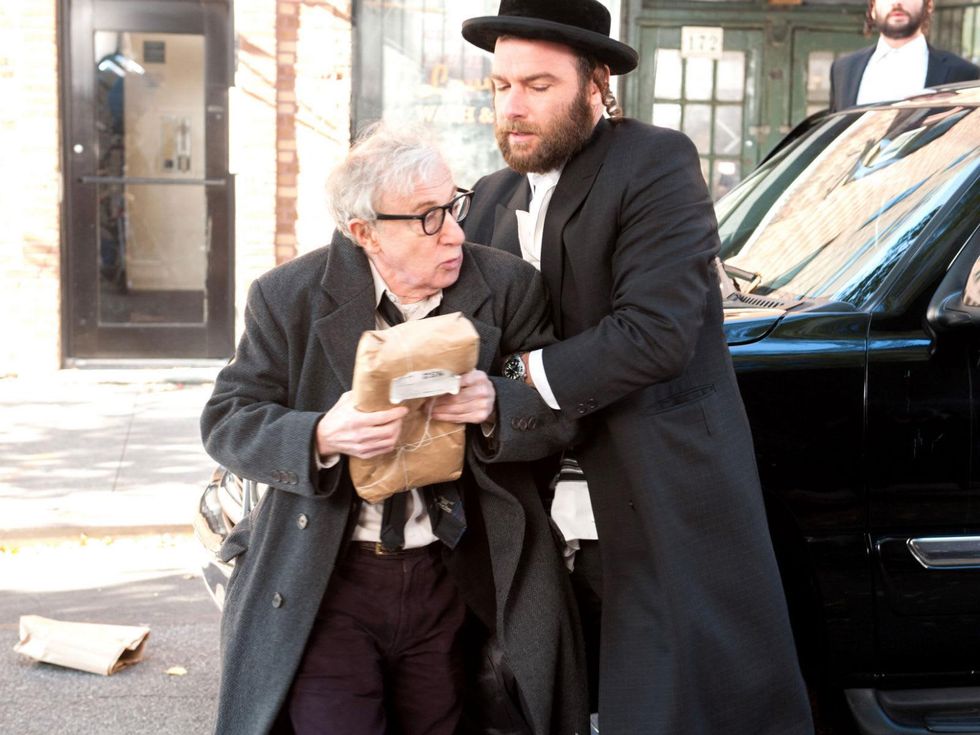Faux Woody Allen
Fading Gigolo can't hold a candle to actual Woody Allen movies
With the lone exception of 1981, Woody Allen has directed at least one movie a year every year since the Oscar-winning Annie Hall in 1977. But the last time he starred in a movie that he didn’t also direct was way back in 2000 for Alfonso Arau’s Picking Up the Pieces.
It took John Turturro, in his fifth directorial turn, to convince Allen to branch out again with Fading Gigolo. In it, Allen plays Murray, who, more than a little randomly, convinces his florist friend Fiorovante (Turturro) to start a side gig as a gigolo after being propositioned by his dermatologist (Sharon Stone).
What man wouldn’t write himself into love scenes with Sharon Stone, Sofia Vergara and Vanessa Paradis if he had the chance?
Soon, Fiorovante is providing services to a string of lonely and/or frustrated women, including Selima (Sofia Vergara). But things take a turn for the melancholy when he’s set up with Avigal (Vanessa Paradis), a Hasidic Jew who’s looking for companionship after years as a widow.
It’s obvious Turturro, who had a small supporting role in Allen’s Hannah and Her Sisters, idolizes Allen, as Gigolo has much the same feel as many films Allen has penned and directed. Much of that, of course, stems from Allen’s performance, which has him stammering and using self-deprecating humor through most of his conversations.
But it’s also about the wish fulfillment aspect of the plot; what man wouldn’t write himself into love scenes with Stone, Vergara and Paradis if he had the chance? The only issue is that Turturro seems to lack the precise storytelling and timing skills that make most of Allen’s films so fun to watch.
For one, we’re thrown headfirst into the plot with barely any introduction to either main character. Any good gigolo knows you need some time to warm up instead of just jumping right into bed. There also seem to be a multitude of expository scenes left on the cutting room floor; the movie jumps several times with no explanation, treating characters’ misgivings as no big deal even though it brought them up in the first place.
This lack of clarification leads to confusion about Fiorovante’s relationship with Avigal. A man who is previously only shown doling out sexual services to his clients turns masseuse, chef and confidant, with seemingly no expectation — or desire — of payment.
This, again, speaks to wish fulfillment. Not only is Fiorovante a plucked-from-nowhere sexual dynamo, but he’s also a dream man who knows exactly how to cater to each and every need of someone from a culture completely different from his own.
It’s all a bit difficult to swallow, both from a believability standpoint and from a filmmaking perspective. Throw in other arbitrary elements like an obsessed Hasidic neighborhood watchman (Liev Schreiber) and Murray’s being married to an African-American woman with four kids, and it adds up to a mostly failed effort.
That’s really a shame, because Turturro and Allen have an easygoing camaraderie that makes for some really fun scenes. If Turturro had included four or five more segments of their banter to provide a bridge between other scenes, the movie’s problems likely would have been solved. As it stands, though, their performances, as well as those of all of the other big supporting actors, are overshadowed by the slipshod nature of the plot.
Fading Gigolo can’t measure up to a Woody Allen-directed movie, and it’s only through his mere presence that it emulates one in any way, shape or form.




